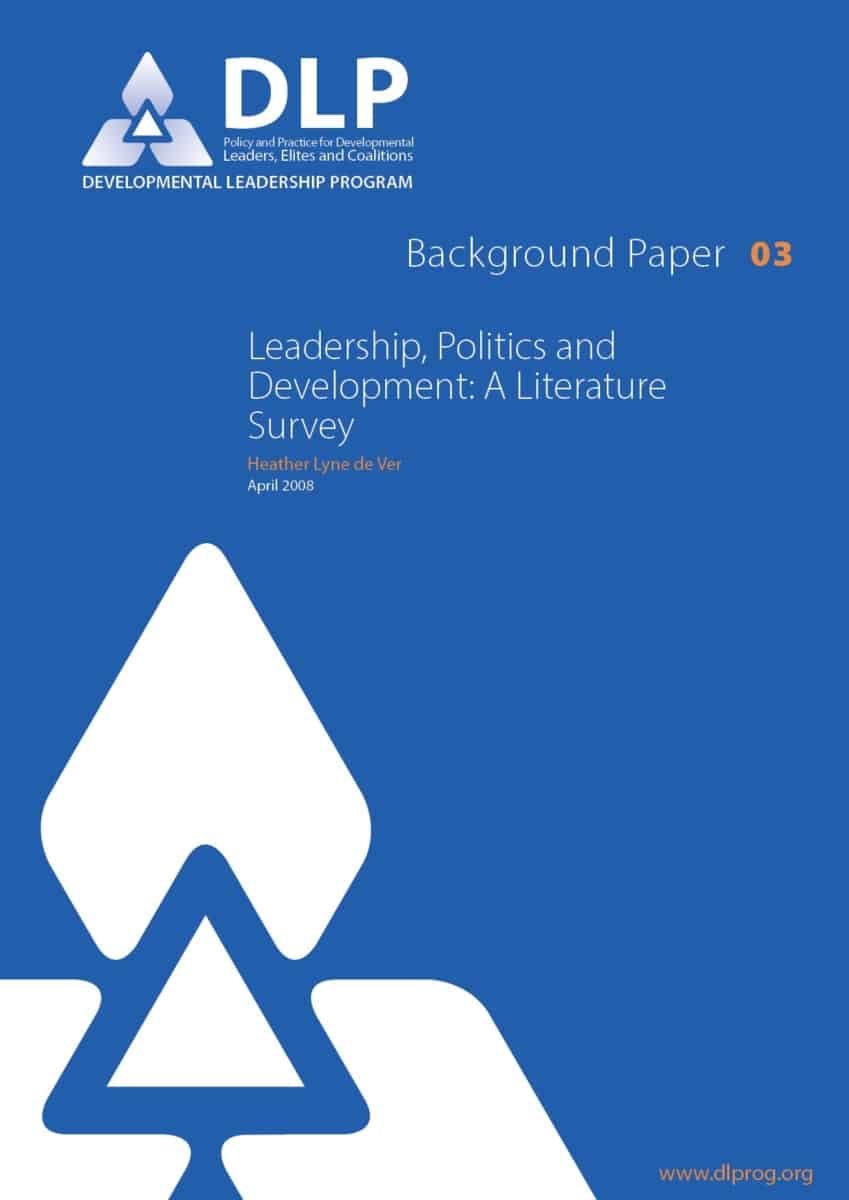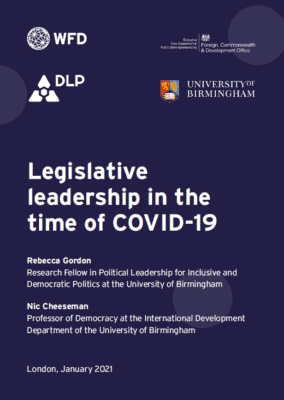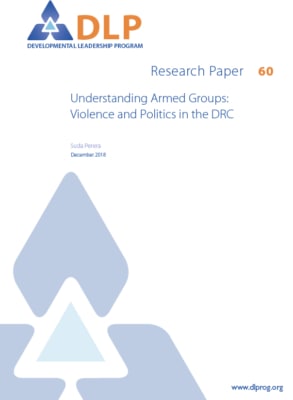This paper is one of a series of background papers which provide context for the Leaders, Elites and Coalitions Research Programme which will be exploring the role of leaders, elites and coalitions in the promotion of economic growth and broad-based, inclusive social development. Underlying this work is the central hypothesis that leaders, elites and coalitions play a critical role in establishing effective institutions and building effective states, but knowledge and understanding about these processes is slim.
We set out in this survey to discover the extent to which, if at all, the general literature on ‘leadership’ addressed the role of leadership in the promotion of economic growth and social development, with particular (but not exclusive) reference to developing countries. This literature is substantial, sprawling across a number of disciplines in a somewhat uncoordinated manner. Inevitably, we have not attempted to cover it all but offer here a representative overview of its main preoccupations and themes. Having found little in the literature that addresses key themes and problems in development, we also looked briefly to see what attention has been given to leadership issues in the field of development studies. Our main conclusions can be stated simply. We found:
- That leadership as concept and practice has neither been properly researched nor understood analytically as a key element in the politics of economic growth and social development and seldom addresses those key issues.
- That the bulk of the literature focuses on individuals and individual capacities, or attributes, and not on leadership as a political process involving both leaders’ relations with followers and, more critically, elites and coalitions and their interactions.
- That while the general leadership literature devotes little attention to development issues, the development studies literature, in turn, has barely engaged with issues concerning leaders, elites and coalitions.
- That there are substantial policy-relevant research gaps to be filled.









